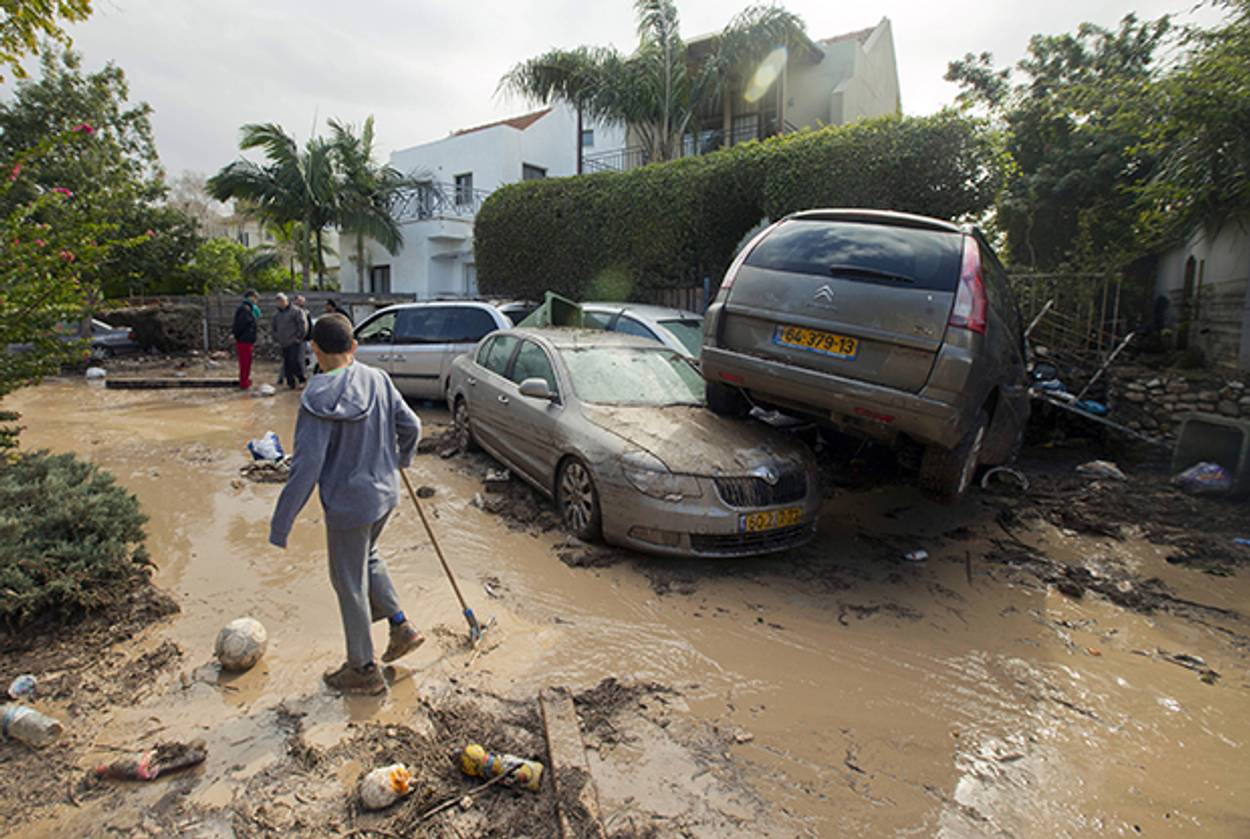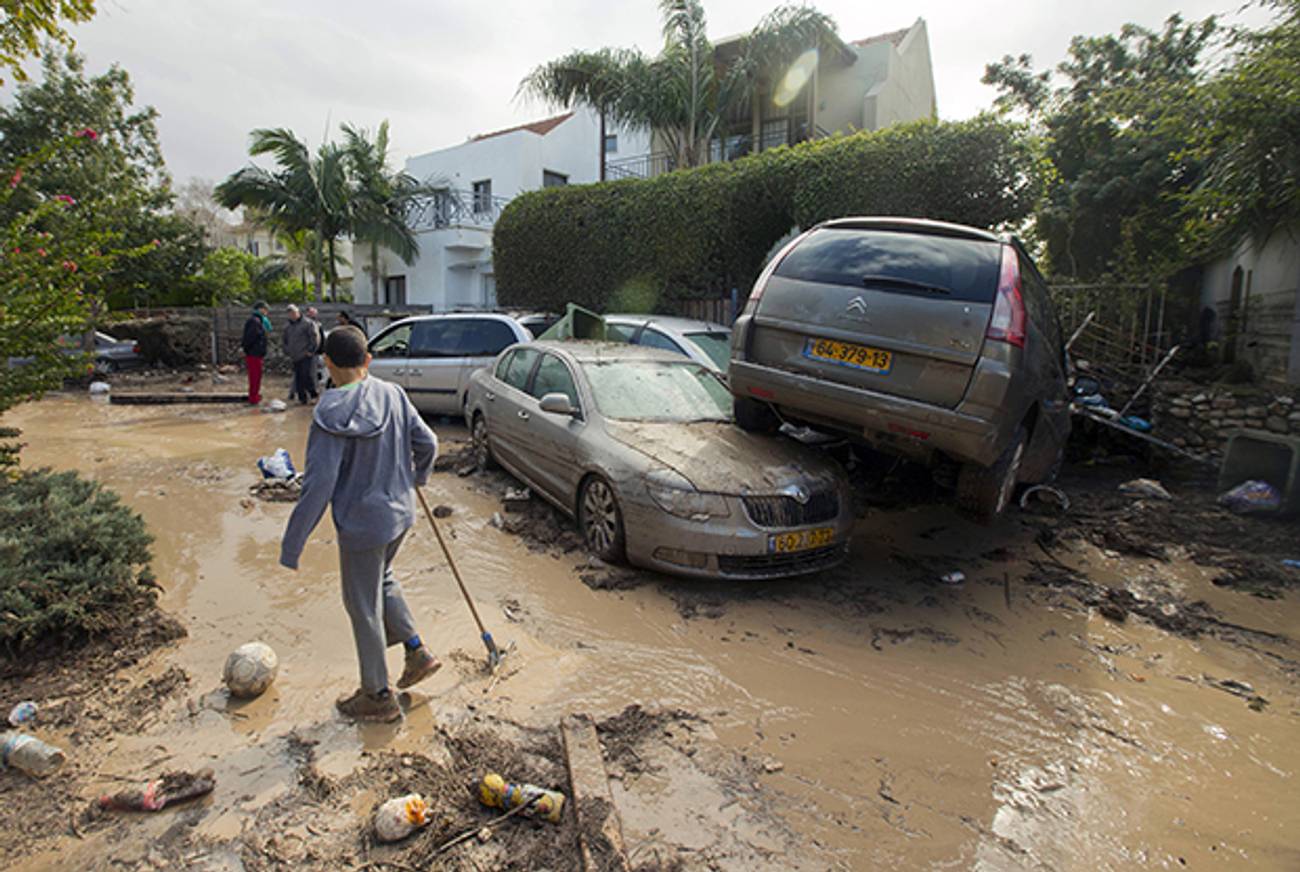Operation Israeli Weather
It snows in Israel at least once every winter. So, why does the Israeli media cover it as though it was a war?




Israel doesn’t have a lot of natural resources, but we are lucky enough to have a nice, warm, stable climate. Weather is not something to complain about around here, and not much of a subject for small talk either. That, at least, is true in real life and for real people; but with a news-crazed hyperactive media, struggling to satisfy the expectations of a society constantly hungry for updates, things get blown out of proportion. Judging from the reports in newspapers and on TV shows, you might mistake every drizzle for a hurricane.
Overall, winter rarely brings too much of a change to Israeli everyday life. There is a slight drop in temperatures, but sunny days are still more common than rainy ones. And most of us like it when things get winterish—a few gray clouds are a welcome change from the summer’s brutal sun. But the media see it differently. Used to covering wars and conflicts, they treat the weather like it was just another military operation—if there isn’t an Amud Anan (literally meaning Cloud Column, the name given to the IDF’s last strike in Gaza, known abroad as Pillar of Defense) taking place, editors, reporters, and weathermen have to settle for another kind of cloud busting. This is how Israeli journalists became storm chasers, or, sometimes, even storm creators.
In its hot-wire approach to the winter’s cold front, the Israeli media react as in crisis mode, as if there is a catastrophe on the way, maybe even a war. Reporters are sent to file live from Mount Hermon in the north, where you can see the first signs of snow, to the Negev desert down south, which often floods at the first sign of rain. That these natural phenomena occur every year hardly matters; every time they happen, they’re breaking news. And when it snows in Jerusalem, another more-or-less annual occurrence, it is celebrated as a supernatural event. These, again, are sights and sounds Israelis meet every winter, but after a long, hot, and sweaty summer, it seems as if our concept of the cycle of life and the seasons needs to be rebooted. That, at least, is what the newspapers’ front pages and the TV’s constant news bulletins are telling us: Beware, a cold front is coming.
We already know, of course, that nothing spectacular is going to happen. We know that there will be some wind, some rain, and some snow at best. But we live in the Middle East, a region accustomed to turbulence, and the weather coverage should be no different. In this reality, everything is treated as a grave event: A tree that fell in a street in Haifa, a few flooded streets in Tel Aviv, or a night without power in Hadera are all met by breathless news crews doing their best both to get us hooked on the disaster and to reassure us that the authorities are taking care of it.
It’s not all bad news: The water level of Lake Kinneret is on the rise, which is good news to those of us who need water to bathe in or to drink as we try to relax and forget all about the political tension around us. But this bit of positivity gets lost in the stormy coverage. Our rainfall is nothing like hurricanes Katrina or Sandy, but you wouldn’t know it from watching Israeli TV. But hey, you take what reality gives you and you make it yours with a twist or with a twister. And if the biggest thing you have to talk about is the weather, then, according to our local journalists and editors, you should ride this storm out until it abates or until the wind brings us another war.
***
Like this article? Sign up for our Daily Digest to get Tablet Magazine’s new content in your inbox each morning.
Amir Bogen is a film journalist.
Amir Bogen is a film journalist.